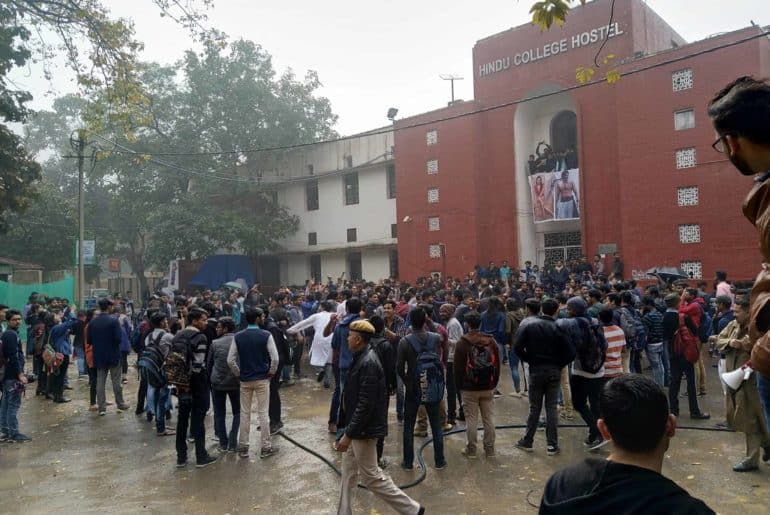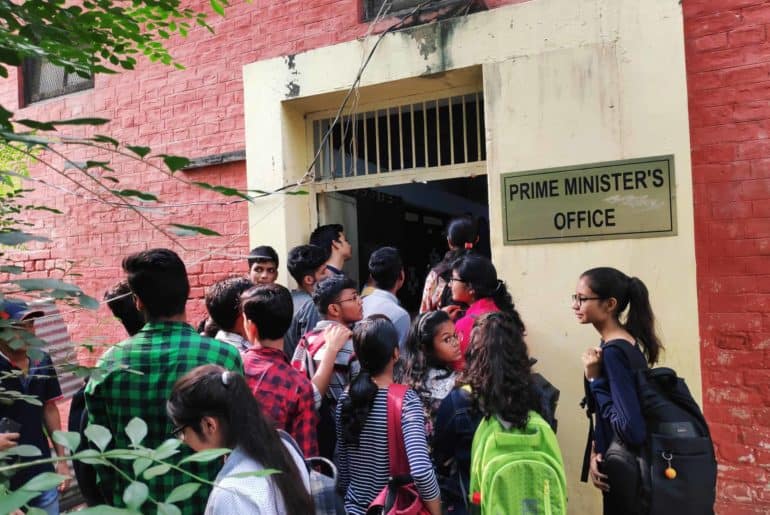With some serious facts staring at us in the face, how are our educational structures evolving to cater to the deteriorating mental health?
In a study conducted by World Health Organisation (WHO) late last year, we were made aware of some devastating facts. India is one of the most depressed countries in the world, over five crore people suffer from mental health disorders and we recorded one of the highest numbers of work-place stress cases. From the 21st century, problems faced by teenagers have changed from excess alcohol consumption and teenage pregnancy to bullying, stress, depression, and body image and self-esteem issues. Distorted ideas of productivity, social media platforms, social stigma attached to mental health have all contributed to this, but our textbooks give the idea that these problems simply do not exist. The content in books in school, colleges and Universities remains largely outdated.
Societies can prove to be a good medium in college to initiate change. They can go beyond being performing and competitive, to providing guidance and support to students who need it. The biggest risk attached to mental health issues is that they are not visible, and so, regularly meeting people, developing friendships, finding a confidante can help in reducing stress.
Nithya, the President of Friends’ Corner of Hindu College, explained the impact of the society and peer counselling, “One can be an effective, empathetic listener, and a great shoulder to cry on among their own peers. We strive to make the college more empathetic, by making them realise every person is fighting their own battles, and if you are struggling, you are not alone. Conversations and sharing can really help in making individuals realise how similar their thoughts, anxieties and worries are.”
The Friends’ Corner also has a Good Vibes tree in the campus for freshers, who expressed on different coloured sheets representative of different emotions, how they felt on their first day, which was then put up on the tree. Beyond having discussions, group sessions, and a flagship event: ‘Mental Health Summit’, they also have a page called “Humans of Hindu” for people to share their life stories.
A cell or society working towards mental health can prove to be very beneficial for the whole college. It can begin with a small step of approaching your administration. Discussions and talks can take place on individual problems, mental health issues and the society, stigmas, therapy and support groups. In order to create a safe space, confidentiality becomes a key factor, so certain measures can be taken to ensure that members can have a medium to vent in privacy as well. The society needs to be run by dedicated and proactive students to prevent it from become an inactive society.
In no way does this cell or society take the place of a counsellor or therapist. The dire need for college counsellors still remains and needs to be stressed on. Most colleges either lack a counsellor or have a temporary one, often close to no student approach this largely unavailable counsellor, and the whole process goes in vain. But this (society) can become a facilitator in that journey of betterment. Furthermore, creating these spaces can also set a chain reaction in other colleges. With around 90 colleges in DU, the reach can be tremendous. One can also reach out to other colleges, like Hindu College, to know more about a mental health and counselling cell.
Recently what gained traction was the introduction of a six-month certificate course on Happiness in Ramanujan College. It is a free of cost course, for which forty-five students have already been enrolled. It will judge students based on their attendance, project and course work. This step sets precedence for other institutes to also follow its lead.
Chief Minister Arvind Kejriwal introduced Happiness Curriculum till class eighth in all government schools. This pioneering step will tackle mental health problems from a young age, yet for now it stands the test of time.
While the reason behind mental health deterioration are many, it has been romanticised by shows and memes, further aggravated by our economy and job pressures, and absence of acceptance. When the recent budget came out, I anticipated whether our country would also take a step like New Zealand. In a revolutionary step, Prime Minister Jacinda Arden’s Well Being budget prioritised poverty and mental health. What cannot be ignored is that this issue creeps in through some crevices. Different steps are being taken, but more comprehensive and structural changes need to be brought by all bodies, including our University.
Feature Image Credits: The Central Digest
Shivani Dadhwal









